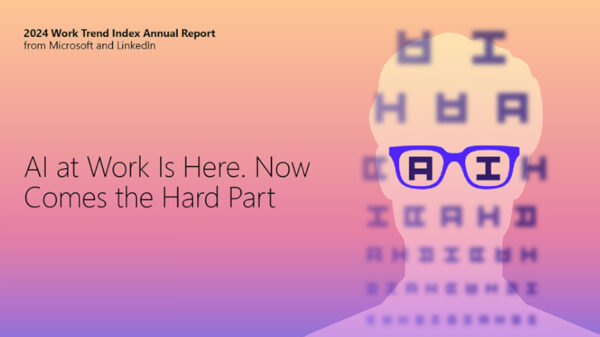Digital transformation initiatives are expected to add an estimated $8-billion to the Philippines’ gross domestic product (GDP), and increase its growth rate by 0.4% annually by 2021, according to a study entitled “Unlocking the Economic Impact of Digital Transformation in Asia-Pacific.”
The report, conducted by Microsoft in partnership with IDC Asia Pacific, included 100 respondents from the Philippines, and aims to understand the impact of digital transformation in three areas: GDP, business, and society.
As evidence that digital transformation is happening in the Philippines, an estimated 3% of the country’s GDP was derived from digital products and services created directly through the use of digital technologies including mobility, cloud, Internet of Things (IoT), and artificial intelligence (AI) in 2017. This will grow by 18% in 2019 and accelerate to about 40% by 2021.
“The Philippines is clearly on the digital transformation fast track,” said Hans Bayaborda, Managing Director at Microsoft Philippines. “Within the next four years, we expect to see approximately 40% of the Philippines’ GDP to be derived from digital products and services.”
Through digital transformation, businesses enjoy higher profit margins, greater productivity, increased revenue from new products and services, improved customer advocacy, and higher cost reductions.
Bayaborda observed that in the Philippines, the range from 6% to 12% in terms of increase in profitability and productivity is very significant and at the same time, the more than 50% growth in the next three years as approximately forecasted by IDC is a better improvement in margins and productivity.
In addition, many organizations are trying to streamline their operations and improve productivity by investing in analytics or AI to drive customer loyalty and retention, according to Bayaborda.
Challenges
While there are benefits to be gained from digital transformation, there are also challenges to contend with.
“The lack of skills and resources is relevant because in every technology, retooling and upscaling talents is a perennial issue, and of course, the resources right now are short in supply and very expensive. It’s very important that this number one challenge is at the top of mind of leaders of organizations,” said Bayaborda.
Bayaborda also mentioned cybersecurity, finding the right technology or strategic partner, and culture as other challenges enterprises go through in their digital transformation journey.
“Culture cannot be bought by pesos or dollars. It requires change of leadership, vision, and values and at the same time, how the management team was able to cut across organizations in implementing change,” said Bayaborda.
The study also showed that while 93% of local organizations have embraced digital transformation, only 7% in the entire region can be considered as leaders or organizations that have full or progressing digital information strategies, with at least a third of their revenue derived from digital products and services. Besides, these enterprises expect 20% to 30% growth across various business areas.
Positive benefits to the society
Digital transformation has positive benefits to the society, the study says. It provides opportunity to increase individual income; create more high-valued jobs in the future for individuals; and opportunity for individual to have better access to education and training.
The study also noted that the fear of digital transformation is on job displacement but actually it is more of job transformation. Ninety two percent of jobs in the next three years will be transformed in the Philippines. Of these, 34% need re-training, upscaling and re-tooling to make sure all these new jobs will be filled up. New roles, at 31%, will be created which has slightly positive effect on what is automated and redundant at 27% but if you’re able to re-tool, upscale and have more training, then it’s more job transformation.
Apart from this, the study says that 84% of organizations are confident that young professionals or millennials must have future-ready skills that will help them suited to new roles.
“I think the study is very important at the same time will make us recommend and have seen the trend that set the digital transformation leaders apart from followers, and in Microsoft perspectives, accelerating their digital transformation journey should happen now,” said Bayaborda.













































































































